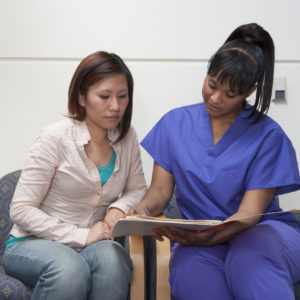Full Independence for Nurse Practitioners Expand Scope and Delivery Opportunities
On Monday, August 31, 2020, the California state legislature adopted a bill, AB890, to grant nurse practitioners in the state more independence. Controversy about this topic has been going on for some time and, like other proposed healthcare system changes, has accelerated since the COVID-19 pandemic.
Shortage of Healthcare Workers
 The surge of COVID cases highlighted the shortage of healthcare workers—especially in many rural areas. Throughout the country, and encouraged by this letter from the Department of Health and Human Services (DHHS) secretary, many states have eased restrictions. This applies to both the scope of services (broadening what nurses can do without a supervising physician) and the delivery of services (relaxing telehealth restrictions) to meet the increased demand.
The surge of COVID cases highlighted the shortage of healthcare workers—especially in many rural areas. Throughout the country, and encouraged by this letter from the Department of Health and Human Services (DHHS) secretary, many states have eased restrictions. This applies to both the scope of services (broadening what nurses can do without a supervising physician) and the delivery of services (relaxing telehealth restrictions) to meet the increased demand.
California Has Not Changed Its Laws
According to the American Association of Nurse Practitioners, California remains behind 22 other states that have granted nurse practitioners full independence. In the majority of states, nurse practitioners can provide primary care services, write prescriptions, and see patients without physicians’ supervision.
In California, however, nurse practitioners must enter into written supervision agreements with a physician to oversee the nurses’ work. Among other restrictions, there is a limit to how many nurses a physician may supervise.
In March, Governor Gavin Newsome allowed the state’s professional regulatory boards to temporarily waive regulations so more practitioners could assist with the coronavirus outbreak. These changes accelerated a fight that has been going on for some time between two of the state’s health system heavy hitters: the California Medical Association and the California Association of Nurse Practitioners.
Compromises May Get the Bill Passed
 California Assemblymember Jim Wood (D-Santa Rosa)—a dentist who chairs the Assembly Health Committee—authored AB890, the bill granting nurse practitioners the ability to practice without doctor supervision. Under a series of compromises pushed by the medical doctor lobby, the final bill allows nurse practitioners to see patients in their own practices independently, but only after working under a physician’s supervision for at least three years. Gov. Newsome must now decide whether to pass this bill.
California Assemblymember Jim Wood (D-Santa Rosa)—a dentist who chairs the Assembly Health Committee—authored AB890, the bill granting nurse practitioners the ability to practice without doctor supervision. Under a series of compromises pushed by the medical doctor lobby, the final bill allows nurse practitioners to see patients in their own practices independently, but only after working under a physician’s supervision for at least three years. Gov. Newsome must now decide whether to pass this bill.
The likely passage of AB890 will bring California closer to the rest of the country in allowing allied healthcare providers a broader scope of services. While the medical doctor lobby will continue to fight these changes—both to protect their pay structures and their patients’ health. An increase in healthcare delivery ‘supply’ will be almost inevitable in order to keep up with our burgeoning healthcare systems’ demands.
Standard of Care
 Where medicine goes, so do most other healthcare ecosystems, such as dental. We need to pay careful attention to how the temporary and permanent easing of restrictions has affected healthcare delivery for the better or worse in other states. More providers are undoubtedly better to increase society’s access to healthcare, especially in rural areas. At the same time, the quality of care must meet existing requirements for treating patients and provide (when possible) the standard of care that is taught in:
Where medicine goes, so do most other healthcare ecosystems, such as dental. We need to pay careful attention to how the temporary and permanent easing of restrictions has affected healthcare delivery for the better or worse in other states. More providers are undoubtedly better to increase society’s access to healthcare, especially in rural areas. At the same time, the quality of care must meet existing requirements for treating patients and provide (when possible) the standard of care that is taught in:
- Medical.
- Dental.
- And related programs across the country and worldwide.
Stay tuned to this ‘channel’ for more thoughts on this topic, and please let us know if you have feedback. Contact Pacific Health Law Group today!
CC CREDS:
“Gavin Newsom” by Gage Skidmore is licensed under CC BY-SA 2.0
